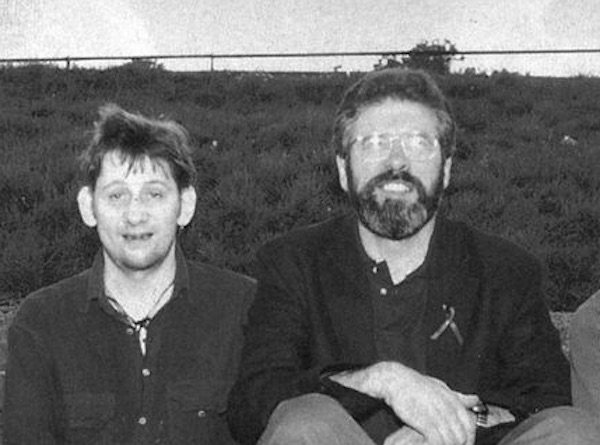
Interviewed for his upcoming authorised biography, Pogues singer Shane MacGowan said that the conflict in the north of Ireland “has preoccupied (his) mind since childhood”.
Author Richard Balls interviewed the famous lead singer for his book, ‘A Furious Devotion’.
Speaking about Mr MacGowan, he explained: “Sit with Shane for any length of time and the conversation will turn to northern Ireland.
“For most of his life he has been both fascinated and pained by its bitter struggles and it is a subject that can trigger the angry outbursts which have become part of his personality.”
The author said the English-born singer “knows his Irish history inside out and is a staunch republican who counts former Sinn Féin president Gerry Adams as a close friend.”
Shane’s father Maurice was from Dublin while his mother Therese was from near Nenagh in County Tipperary, and he would make regular summer trips to the family home, ‘The Commons’, in his childhood. It was those visits across the Irish Sea that reinforced the singer’s republican beliefs as he learned more about his Irish roots.
He said: “It was on his holidays at The Commons that Shane heard about how his ancestors had fought for ‘the cause’ and that a whole division of Black and Tans were killed and buried near the cottage. He was given a copy of My Fight for Irish Freedom by Dan Breen which was ‘very violent and very graphic’.
“Breen was involved in the ambush and killing of two RIC policemen, an act regarded to have started the War of Independence, and fought in the third Tipperary Brigade of the IRA. He became the first republican to enter the Free State Parliament and represented Tipperary for more than 30 years.
“As Shane got older and his ‘furious devotion’ to Ireland deepened, it gave him the identity he never had growing up in England. When he found fame with The Pogues, his family’s republican credentials came to form a keystone in his backstory.
“Although neither The Pogues nor The Popes were overtly political, Shane has made his own contributions to the rebel songbook.”
One of his songs, Paddy Public Enemy No 1, was inspired by INLA (Irish National Liberation Army) leader Dominic McGlinchey, shot dead by unidentified attackers while under Garda police surveillance in 1994. The assassination took place as talks on a ceasefire were at a crucial juncture.
Mr Balls said: “The release of that album had come just two months after the start of the peace talks in Northern Ireland that would culminate in the Good Friday Agreement.
“In interviews to promote it, Shane didn’t shy away from expressing his republican views. He said, ‘I think it should happen now — the English should get out. We’ve talked enough, they should let the Irish run their own country. I’ve always said that the Brits have no right to be there. I believe in a republic, a socialist republic.’
“That summer, Shane had met Sinn Féin leader Gerry Adams at the Féile an Phobail, the West Belfast Festival... Shane said he thought there had been ‘mutual respect’ between them. The two have remained friends and Gerry Adams still writes to Shane.”
![[Irish Republican News]](https://republican-news.org/graphics/title_gifs/rn.gif)
![[Irish Republican News]](https://republican-news.org/graphics/title_gifs/harp.gif)

